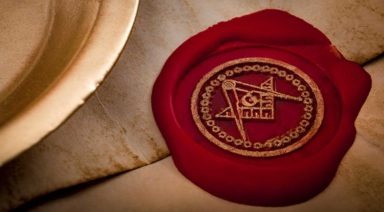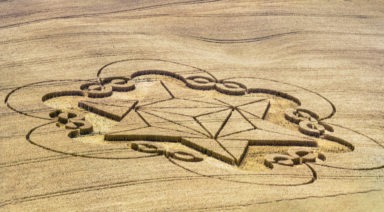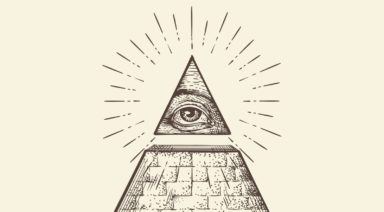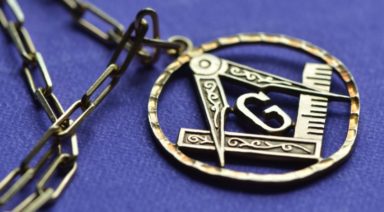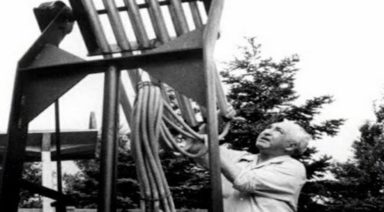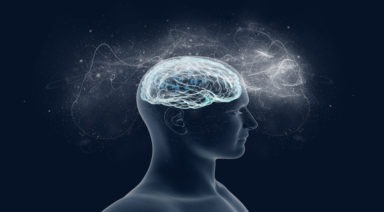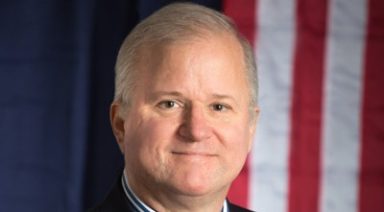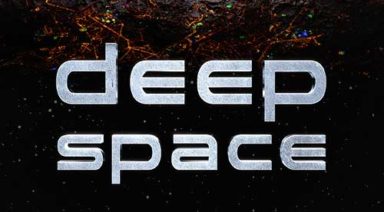The Incorporation of the United States of America

Who do you work for? Few people would say they work for a corporation called the United States of America. But researcher Jordan Maxwell suggests what Americans call their country is actually a corporation that “employs” all of its so-called citizens. In “Incorporating America,” Maxwell leads us through an uncomfortable idea that started to took shape after the Civil War, and culminated in the creation of the Federal Reserve in 1913.
Maxwell has been a student of the occult since 1959. His work has led him through hidden foundations of Western religions and secret societies, both ancient and modern. Emerging from his research, he has identified certain symbols that offer clues into how societies behave and who is behind the mass manipulation and abuse of the populace.
Maxwell’s book Matrix of Power, suggests there is a secret cabal controlling money, politics, and almost every facet of life without our knowing what’s really going on. Adding to his series Secret Life of Symbols, it stands as an intriguing interpretation of the symbolism in politics, religion, and corporatocracy.
Among the symbols Maxwell explores are references to water and its relation to the heartbeat of world commerce and politics, based upon what he calls the Law of the Sea. Water, he explains, is the female energy that delivers goods throughout the world. Further, he equates banks — the institutions that hold, lend, and dole out our money — with the banks of waterways. Riverbanks, Maxwell explains, direct the flow of the current/currency. Thus, money is cash flow, a liquid asset that ebbs and flows.
Another facet of Maxwell’s dissection of the economic corporate machine is the male-female interaction revolving around the sea. He explains how ships throughout the world, named after women and referred to with the feminine pronoun, give birth to the goods that are sold to sustain the economy. As a matter of tradition, ships have been given female names since the days they were dedicated to goddesses. Boating historians note that after beliefs in goddesses gave way to more modern ideas, shipbuilders and owners continued to name their vessels after important mortal women to guide their voyage.
School children may recall that Christopher Columbus crossed the Atlantic in a ship named after the Virgin Mary, La Santa Maria. And, Maxwell notes, it is no coincidence that a ship pulls into her berth before issuing forth the goods it has been carrying in the primordial soup of the sea. In this instance, berth, he says, is a metaphor for “birth.”
Maxwell suggests that Americans have seen a profound shift since the founding of the United States, away from the land’s inhabitants holding sovereignty — possessing a great many personal freedoms — to assuming their role as servants and property of the U.S. Government.
Maxwell says prior to the Civil War, Americans enjoyed complete freedom of movement, speech, and action. Now we are burdened with rules, policies, regulations, and symbols that have turned us into laborers for the government, with the power structure responsible for pulling the strings and indenturing the populace.
Maxwell has posited a number of theories on how the U.S. has changed as a nation, with personal freedoms surrendered to a central and secret government. Maxwell, of course, is not the first or last to pontificate about this devolution, but his ideas are part of the frustration in finding a cause for our collective decline as a society and our disillusion with representatives and institutions.
Among other interesting teachings, Maxwell states that on the ominously named Jekyll Island off the coast of Georgia is where a clandestine meeting of elite bankers was held to ideate the creation of the Federal Reserve. The meeting of the “First Name Club,” as no one used last names, was guised as a duck hunting trip. What resulted from it was the creation of an independent, hybridized banking system acting as a part public/part private entity.
Maxwell’s “Secret Life of Symbols” is a stepping-off point for those who may want to look beneath the surface of the history of our economy and political system.
Famous Members of the Ancient Freemason Society
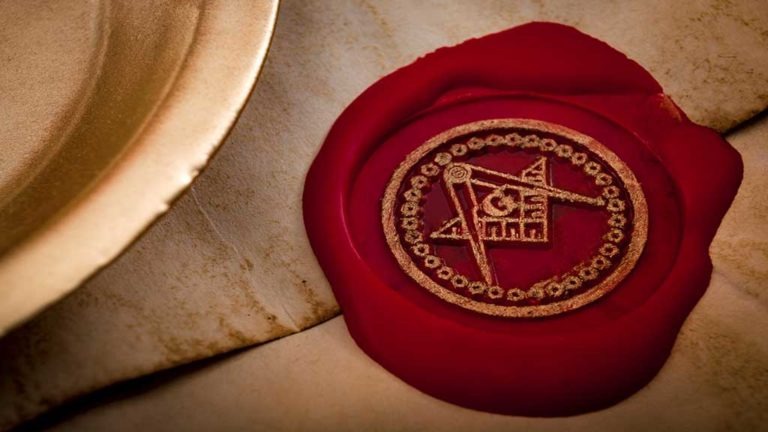
Often associated with cultish rituals, secret handshakes, and grand ceremonial robes, Freemasonry is one of the largest, oldest, and perhaps least understood organizations in the world. Though the society was formally established three hundred years ago in 1717, it is rooted in the builders’ guilds of the early Middle Ages. Indeed, the oldest known Masonic document, the Regius Manuscript, dates to 1390 and describes, in 794 verses, the duties and obligations of the stone cutters and masons.
At its inception, Freemasonry stood as an elite but secret organization to which the builders of Europe’s grand and elaborate cathedrals and castles belonged. Those who joined were not bondsmen, but were free craftsmen — master architects, engineers, and mathematicians — and it was only within the confines of the lodges they built, in their covert meetings, that they shared trade secrets with other guild members and apprentices sworn to secrecy.
As cathedral building stalled and the scope of masonic projects changed, these guilds found it necessary to accept a wider variety of members, branching off to form different sects that they called “lodges.” Eventually, they all coalesced into one formal organization, known as the “Grand Lodge.”
The Knights Templar
The Knights Templar was an order of warrior-like Catholic monks in 1118 A.D. who guarded crusading pilgrims, as they made their way from Jaffa to Jerusalem. They are said to have harvested a great treasure from Solomon’s temple that King Philip IV of France desired, and so the king had them arrested, burning their leader, Jacques DeMolay at the stake. What happened to the Knights Templar after their arrest has become lost to history. Though Encyclopedia Britannica asserts that the Freemasons do not have any historical connection with the Knights Templar, there is still quite a bit of suspicion that the Knights Templar re-emerged in the 1700s, and even helped start the French Revolution, to exact revenge.
Masonic Sacred Geometry
One of the defining aspects of Masonic architecture and art is its representation of sacred geometry — shapes and various geometric patterns that are found repeated throughout the natural world. The Freemasons believed that sacred geometry imbued their architecture or creation with a sense of the divine. For example, the Fibonacci Sequence, one of the most famous patterns in mathematics, is represented by the spiral shape, symbolizing a gateway or life cycles. One will often find winding staircases in castles and cathedrals, symbolizing life’s journey and the awakening of the soul.


